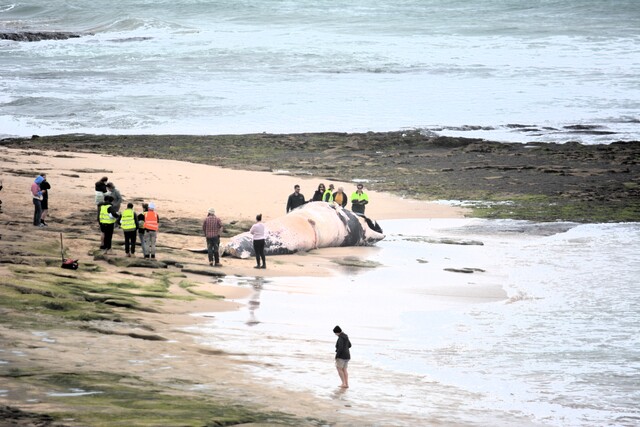A whale carcass that washed ashore at Thirteenth Beach will be left to decompose naturally, the Department of Energy, Environment and Climate Action said.
The 14 metre long whale was found at the beach on September 12 and DEECA said the decomposition could take months.
“This is a natural process that is part of the marine ecosystem right along our coastline,” it said.
“It is a dynamic environment and monitoring will continue. Large swells and high tides may result in the carcass washing offshore or moving to a more accessible location, and we will reassess our approach as required.
“Removal is not a viable option at this time. A range of considerations including the size of the whale, the current stage of decomposition, its location, limited access for required machinery, and weather conditions have been considered.
“Towing it offshore cannot be done safely and burying it is not practical or supported at this location.”
DEECA said the whale has been identified as a sub-adult fin whale and is about 16 tonnes.
“To remove the approximately 16 tonne carcass, it would need to be transported to the beach in front of the Thirteenth Beach surf club, divided up, and then loaded into vehicles that can get down to the beach via the small, narrow access track,” it said.
“This would result in a large section of the beach being closed off for an extended period, and would also require the removal of a top layer of soiled sand after completion.”
An exclusion zone has been established around the carcass. People will still be able to walk around the Bluff and for those interested be able to see the carcass from a safe distance.
The beach outside the exclusion zone is not closed although a shark warning remains.
Swimmers and surfers should continue to avoid the area, and seek information updates from VicEmergency – Barwon South West.
Life Saving Victoria will be undertaking drone surveys to monitor for sharks in the area.









